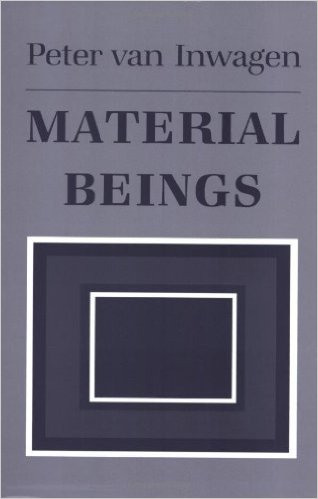Joel Green’s Thesis: “If, as is often alleged, neuroscientists have discredited a dualist interpretation of the human person, I want to explore the usual corollary that, in doing so, they have also discredited the biblical faith. It will become clear that I take the former claim to be true, the latter to be false.”[1] According to Green, the sciences have discredited a dualist ontology of the human person. Green argues that human identity is not grounded in the reference to a substantive, embodied soul but to a set of capacities or functions enabled by a physical base.[2] Green thinks a non-reductive physicalism is compatible with Christian belief and that the…
-
-
Plastic Theseus
The famed puzzle about the Theseus’ ship getting its parts replaced involves an assumption: the ship is made of wood and so are the replacement parts. But what if the parts used to replace the old parts are not wood, but plastic? Perhaps, over time, each wooden part of the ship is replaced with a plastic part. We can even follow the story where it usually goes: the old parts are reassembled in some warehouse somewhere. There lies in the warehouse an old ship with all the old wooden parts while at sea a plastic ship goes about its business bearing the famous name. The question is: does this alter…
-
Notes: Material Beings by Peter van Inwagen
“There are no visible objects but men and women and cats and other living organisms… There are no tables or books or rocks or hands or legs.”[1] 10 metaphysical presuppositions: 1. The identity relation is absolute and allows for no relative identity. Absolute identity holds that for any x, x is identical to y iff all that is true of x is true of y. Relative identity is the denial of absolute identity and suggests that identity is sortal relative. 2. Four dimensionalism, the thesis that an object’s parts include its temporal parts (time-slices) is false. 3. Logic is an ideal but the use of non-standard logics in consideration of…
-
The Endless Search For Empirical Evidence Against Folk Psychology
Many arguments for physicalism, the view that all that exists is describable in terms of physics, assume that, at some point, there will be enough convincing empirical evidence to show that folk psychology, the view that mental stuff or souls exist, is false. Let’s be clear: this would be a monumental feat and, so far, no one has come close. And, absent any empirical evidence, folk psychology carries on. So, what kind of evidence would do it? You can’t exactly show anyone that there is no mental/soulish stuff in the world. It’s no good pointing at a brain and saying, “see! There’s no soul there!” What you would need is…
-
Are You A Bouncy Physicalist? Take the Test and Find Out!
If you think reality is exhaustively physical, then you will probably be either a pessimist or an optimist about naturalistic scientific discovery. You will either conclude that it is highly likely that “folk psychology,” the belief that there are irreducibly mental, non-physical entities of some sort, will be shown to be false, or you will think that though it is possible that folk psychology will be proven false, it is unlikely. The latter position entails the belief that one should continue the naturalistic research program with a physicalist assumption even though you probably won’t be able to prove it. If you’re are an optimist, a bouncy physicalist, you will think…
-
Why The Hard Sciences Need a Little “Mystery”
Micheal Graziano thinks that consciousness, the apparent ability of human beings to have qualitative experiences, is not mysterious, at least it can’t be explained by mysterious methods. By mysterious, he means any method of enquiry that is not a hard science: The study of consciousness needs to be lifted out of the mysticism that has dominated it. Consciousness is not just a matter of philosophy, opinion, or religion. It’s a matter of hard science. It’s a matter of understanding the brain and the mind—a trillion-stranded sculpture made out of information. It’s also a matter of engineering. If we can understand the functionality of the brain, then we can build the…
-
Supervenience and the Illusive Connection Between Physical And Mental Properties.
The problem of exclusion suggests that one or other of the following theses should be abandoned: all non-physical properties depend on physical properties without being reduced to physical properties and all entities that exist are physical entities. In response to the problem many physicalists have subscribed to a form of property dualism or reductive physicalism (eliminativism). Others hold that properties that are non-physical are identical to physical properties yet remain legitimate features for analysis.[1] There are some, however, who have found promising theories that draw on finding coherent ways to analyze the structural relationship between properties. Properties, on their view, are hierarchically arranged, one depending on another, being realized by…

